Filter by

Sharing cities :a case for truly smart and sustainable cities
The work makes a case for understanding cities as shared spaces and venues for collaboration; and proposes policies and practices to share cities fairly. It argues that with modern technologies the intersection of urban space and cyberspace provides an unrivalled platform for more just, inclusive and environmentally efficient economies and societies rooted in a sharing culture.OCLC-licensed ven…
- Edition
- -
- ISBN/ISSN
- 9780262329705
- Collation
- 1 online resource (x, 445 pages) :illustrations.
- Series Title
- -
- Call Number
- -
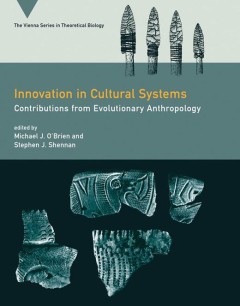
Innovation in Cultural Systems: Contributions from Evolutionary Anthropology
Here, leading scholars offer a range of perspectives on the roles played by innovation in the evolution of human culture. The contributors consider innovation in biological terms discussing epistemology, animal studies, systematics and phylogeny, phenotypic plasticity and evolvability, and much more.OCLC-licensed vendor bibliographic record.
- Edition
- -
- ISBN/ISSN
- 9780262259101
- Collation
- 1 online resource (xi, 284 pages) :illustrations.
- Series Title
- -
- Call Number
- -
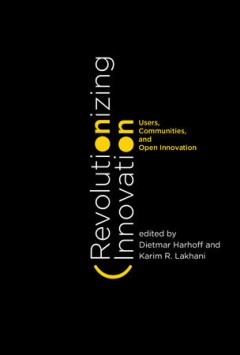
Revolutionizing innovation :users, communities, and open innovation
The last two decades have witnessed an extraordinary growth of new models of managing and organizing the innovation process that emphasizes users over producers. Large parts of the knowledge economy now routinely rely on users, communities, and open innovation approaches to solve important technological and organizational problems. This view of innovation, pioneered by the economist Eric von Hi…
- Edition
- -
- ISBN/ISSN
- 9780262331524
- Collation
- 1 online resource (xv, 577 pages) :illustrations
- Series Title
- -
- Call Number
- -

Imperial Technoscience: Transnational Histories of MRI in the United States, …
The origin of modern science is often located in Europe and the West. This Euro/West-centrism relegates emergent practices elsewhere to the periphery, undergirding analyses of contemporary transnational science and technology with traditional but now untenable hierarchical categories. In this book, Amit Prasad examines features of transnationality in science and technology through a study of ma…
- Edition
- -
- ISBN/ISSN
- 9780262322065
- Collation
- 1 online resource (xi, 219 pages).
- Series Title
- -
- Call Number
- -
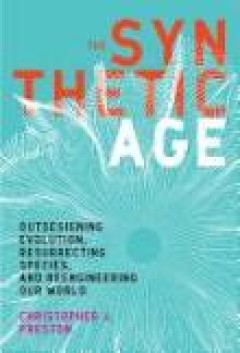
The synthetic age :outdesigning evolution, resurrecting species, and reengine…
Imagining a future in which humans fundamentally reshape the natural world using nanotechnology, synthetic biology, de-extinction, and climate engineering. We have all heard that there are no longer any places left on Earth untouched by humans. The significance of this goes beyond statistics documenting melting glaciers and shrinking species counts. It signals a new geological epoch. In The Syn…
- Edition
- -
- ISBN/ISSN
- 9780262345293
- Collation
- 1 online resource (224 pages)
- Series Title
- -
- Call Number
- -
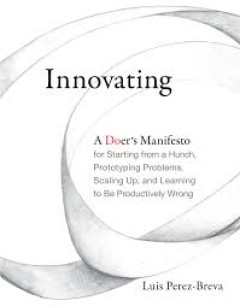
Innovating :a doer's manifesto for starting from a hunch, prototyping problem…
Innovation is the subject of countless books and courses, but there's very little out there about how you actually innovate. Innovation and entrepreneurship are not one and the same, although aspiring innovators often think of them that way. They are told to get an idea and a team and to build a show-and-tell for potential investors. In Innovating, Luis Perez-Breva describes another approach --…
- Edition
- -
- ISBN/ISSN
- 9780262336680
- Collation
- 1 online resource (xxv, 396 pages) :illustrations
- Series Title
- -
- Call Number
- -

Internet architecture and innovation
Today--following housing bubbles, bank collapses, and high unemployment--the Internet remains the most reliable mechanism for fostering innovation and creating new wealth. The Internet's remarkable growth has been fueled by innovation. In this pathbreaking book, Barbara van Schewick argues that this explosion of innovation is not an accident, but a consequence of the Internet's architecture--a …
- Edition
- -
- ISBN/ISSN
- -
- Collation
- 1 online resource (xii, 574 pages) : illustrations
- Series Title
- -
- Call Number
- -
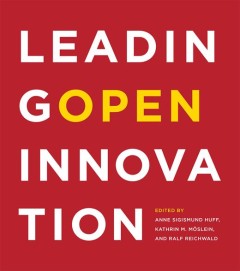
Leading open innovation
In today's competitive globalised market, firms are increasingly reaching beyond conventional internal methods of research and development to use ideas developed through processes of open innovation (OI). This book describes the ways that OI expands the space for innovation, describing a range of OI practices, participants, and trends. The contributors report on a variety of OI initiatives, off…
- Edition
- -
- ISBN/ISSN
- 9780262312455
- Collation
- 1 online resource
- Series Title
- -
- Call Number
- -
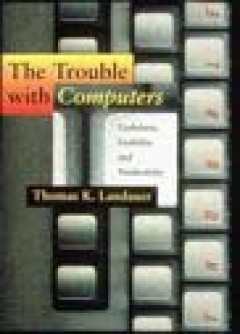
The Trouble with Computers: Usefulness, Usability, and Productivity
A Bradford book."OCLC-licensed vendor bibliographic record.
- Edition
- -
- ISBN/ISSN
- 9780262277891
- Collation
- 1 online resource (xiii, 425 pages) :illustrations
- Series Title
- -
- Call Number
- -

Agroecology in action :extending alternative agriculture through social netwo…
Detailed case studies of agrecological initiatives show how growers, scientists, agricultural organizations, and public agencies can form partnerships to develop innovative, ecologically based techniques for reducing reliance on agrochemicals.OCLC-licensed vendor bibliographic record.
- Edition
- -
- ISBN/ISSN
- 9780262285810
- Collation
- 1 online resource (xiv, 273 pages) :illustrations, maps.
- Series Title
- -
- Call Number
- -
 Computer Science, Information & General Works
Computer Science, Information & General Works  Philosophy & Psychology
Philosophy & Psychology  Religion
Religion  Social Sciences
Social Sciences  Language
Language  Pure Science
Pure Science  Applied Sciences
Applied Sciences  Art & Recreation
Art & Recreation  Literature
Literature  History & Geography
History & Geography